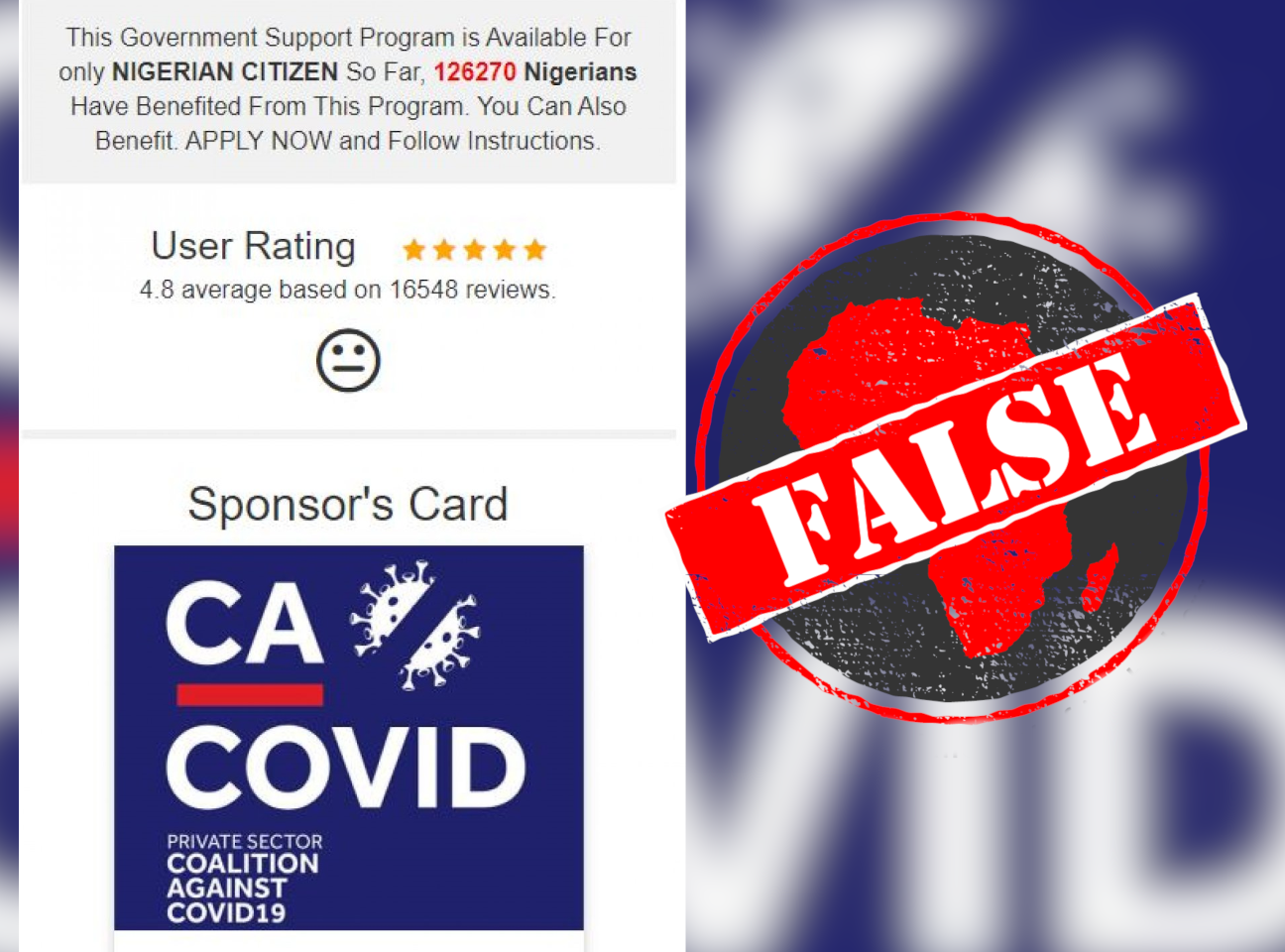A message shared widely on Facebook and WhatsApp claims that Nigeria’s federal government is giving out weekly grants of N10,500 in a “Covid-19 Second Wave Support Fund”.
It reads: “*Dont miss this federal governemt ₦10,500 weekly grant. It takes fews seconds to apply. Dont miss this great opportunity.*”
It started circulating online in January 2021 and quickly went viral, particularly on WhatsApp. It links to a basic web page titled “COVID-19 SUPPORT FUND”.
Text on the page reads: “All Nigrian Citizens are Entitled to ₦10,500 per week to stay at Home in a bid to control the spreed of COVID-19 Second Wave, Proceed Now To Apply By Filling The Provided Form and Choose Your Preffered Payment Method, Your Account Will Be Credited As Soon As Possible.👇👇👇”
It then asks for the user’s name and phone number.
Lower on the page is the logo of Cacovid, the private sector Coalition Against Covid-19 set up to help the government’s efforts to slow the spread of the disease in Nigeria.
But is this really a Cacovid-backed government grant available to all Nigerian citizens to ensure they stay at home? We checked.

Nigeria’s Covid-19 second wave
In December, officials announced that Nigeria had entered a second wave of Covid-19 infections.
“We are in a potentially difficult phase of the Covid-19 resurgence,” Boss Mustapha, chair of the Covid-19 presidential taskforce, said at the time. “Accessing the hope offered by the arrival of the vaccine is still some time ahead.”
A cumulative 145,664 cases of Covid-19 had been diagnosed in Nigeria by 16 February, according to the World Health Organization. A total of 1,747 people have died from the disease.
Not a government domain, no record of scheme
The “COVID-19 SUPPORT FUND” web page is suspicious for several reasons.
First, its internet address – https://supportfund-gov-ng.get-fund.online – doesn’t contain the federal government’s gov.ng domain. And if the page is left open in a browser for a few minutes, it redirects to dodgy websites such as gambling sites.
The spelling is poor: “Preffered” for preferred, “Nigrian” for Nigerian and “spreed” for spread. Howlers like this are a sign that a website is bogus.
There is no record of such a grant scheme on relevant Nigerian government websites. Africa Check went through the ministry websites for finance, humanitarian affairs, information and culture and more, and found nothing.
And once a user has entered their information and gone through several further steps, they are only able to access the promised N10,500 if they share the site with 15 contacts or five groups on WhatsApp.
The message is a scam, as is the website. Our guide to Facebook scams and how to spot them will help you learn how to avoid being conned.
Republish our content for free
For publishers: what to do if your post is rated false
A fact-checker has rated your Facebook or Instagram post as “false”, “altered”, “partly false” or “missing context”. This could have serious consequences. What do you do?
Click on our guide for the steps you should follow.
Publishers guideAfrica Check teams up with Facebook
Africa Check is a partner in Meta's third-party fact-checking programme to help stop the spread of false information on social media.
The content we rate as “false” will be downgraded on Facebook and Instagram. This means fewer people will see it.
You can also help identify false information on Facebook. This guide explains how.





Add new comment